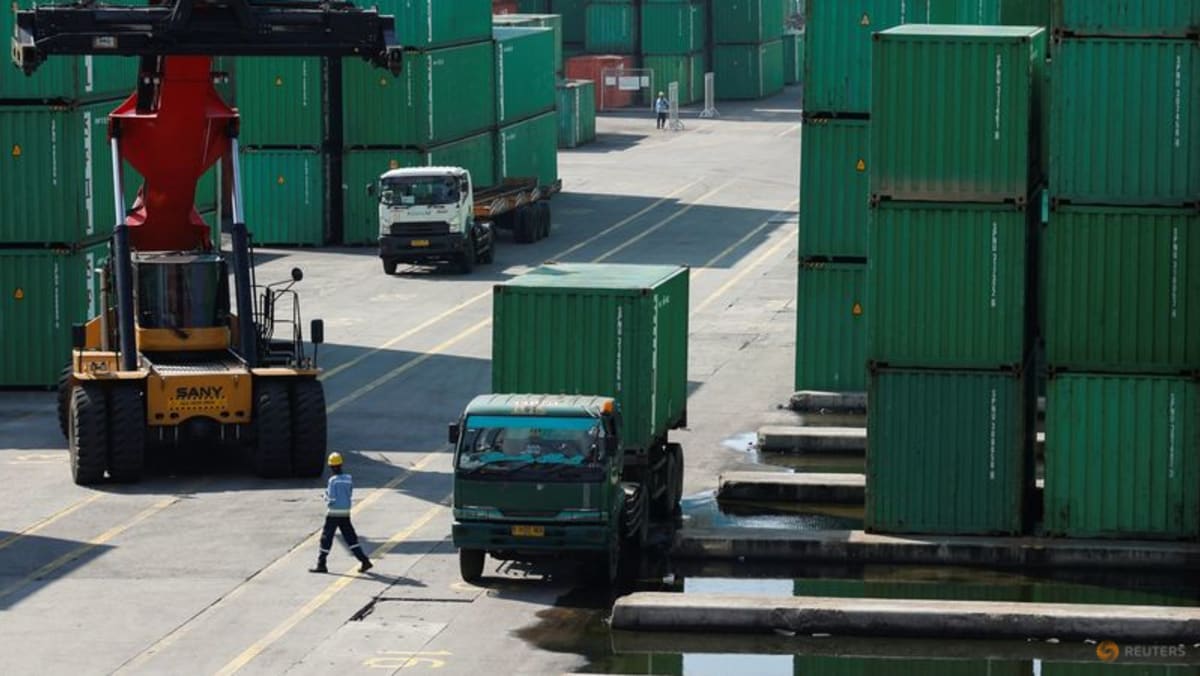JAKARTA: Indonesian leader Prabowo Subianto on Wednesday (Jul 16) hailed a “new era of mutual benefit” with Washington after President Donald Trump announced Indonesian goods entering the United States would face a 19 per cent tariff, far below the 32 per cent he had earlier threatened.
“I had a very good call with President Donald Trump. Together, we agreed and concluded to take trade relations between Indonesia and the United States into a new era of mutual benefit,” he wrote in an Instagram post, without providing details of the deal.
Trump had struck the pact in return for significant purchase commitments from Jakarta following negotiations, including a pledge to buy 50 Boeing jets.
The deal is among only a handful reached so far by the Trump administration ahead of an Aug 1 deadline for negotiations.
“This is an extraordinary struggle by our negotiating team led by the Coordinating Minister for Economic Affairs,” Hasan Nasbi, the Indonesian president’s spokesperson, told reporters on Wednesday.
He added that the deal was “progress that cannot be called small”.
Prabowo had sent his top economic minister to Washington. Nasbi said the Indonesian president had also negotiated directly with Trump over the phone.
He added that Prabowo would hold a press conference to give additional details upon landing back in Indonesia after a foreign trip later on Wednesday.
“LANDMARK DEAL”
Indonesia – the world’s fourth-largest country and a member of G20 – ran a goods trade surplus of US$17.9 billion with the United States in 2024, according to the US trade representative.
The trade deal with Indonesia broadly resembles the framework for Washington’s deal with Vietnam, with a flat tariff on exports to the US roughly double the current 10 per cent and no levies on US exports to Indonesia.
It also included a penalty rate for so-called transshipments of goods from a “higher tariff country”, Trump said in a post on his Truth Social platform.
He added that Indonesia had committed to purchasing US$15 billion in US energy, US$4.5 billion of American farm products and 50 Boeing jets.
No time frame was specified for these purchases.
It remains unclear when the new tariff rate for Indonesia will come into effect.
“This landmark Deal opens up Indonesia’s ENTIRE MARKET to the United States for the first time in History,” Trump wrote on Truth Social.
“I think it’s a good deal for both parties, but we will have full access into Indonesia and we have a couple of those deals that are going to be announced.”
In particular, Trump indicated that copper would be something the US would be interested in importing from Indonesia.
“Now, Indonesia has some great product and they also have some very valuable earths and various other materials,” he told reporters on Tuesday.
“One of the things, as you know, they’re known for is very high-quality copper, which we’ll be using.”
“MEETING POINT”
Nasbi, the Indonesian president’s spokesperson, called the deal a “meeting point” between the two governments, noting that Indonesia’s tariff rate was much lower than other countries in Southeast Asia.
Indonesia’s former vice minister for foreign affairs, Dino Patti Djalal, told a Foreign Policy event Tuesday that government insiders had indicated they were happy with the new deal.
Indonesia’s stock index rose as much as 0.7 per cent on Wednesday after the deal, which some analysts said would provide a positive catalyst for economic activities.
“Well, 19 per cent is better than 32 per cent,” Matt Simpson, a senior market analyst at City Index in Brisbane, said.
“Indonesian non-oil exports such as footwear and textiles will take a hit, but energy and agriculture are set to gain. Officials are, of course, pleased because they’re in Trump’s good books,” he added.
However, some economists in Indonesia have hit out at the deal with Washington.
“This is not an agreement. It’s … a one-sided agreement,” Jakarta-based Centre for Strategic and International Studies (CSIS) executive director Yose Rizal Damuri told AFP on Wednesday.
But he predicted American consumers would likely bear the costs more than Indonesian businesses, with Trump’s tariffs sweeping across many countries.
“The United States itself will be the one more affected. Prices will rise,” he said.
Data on Tuesday showed US inflation spiked in June as the tariffs kicked on.
